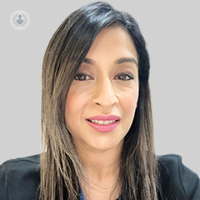Mohs surgery: an in-depth guide: part 2
Written by:In the second article of a two-part series, Miss Rakhee Nayar discusses alternatives to Mohs surgery, its consequences and what happens during the procedure.

What are the alternatives to Mohs surgery?
These options should have been explained to you in detail in your clinic appointment. These options may include:
Observation
This is where no treatment is undertaken on the skin lesion if safe and asymptomatic. It is common for your doctor to arrange regular reviews to see if there is any change or need for any intervention.
Conventional surgery
During this procedure, the skin lesion is removed without using microscopes to check the results at the same time. The cure rate may not be as high as it is with most surgery for your particular skin lesion and slightly more skin may need to be removed.
However, if you prefer a shorter hospital stay or do not want repeated returns to the operating theatre during the course of one day (with the needles to numb your skin each time) this may be a better option for you.
Laser
Certain skin lesions would be suitable for treatment with laser PDT. If this is the case and you wish to be referred to the local laser team, this can be arranged.
Radiotherapy
Certain tumours can sometimes can be successfully treated by the using radiation.
What are the consequences if I do not have Mohs surgery?
If you choose to have any of the other alternative treatments to those previously mentioned, the potential outcomes should have been discussed in your clinic appointment. If you choose to not have any treatment at all for the skin lesion (depending on what the lesion is), your doctor should make you aware of the consequences of this. For example, in the case of a basal cell carcinoma the skin lesion would continue to slowly grow and may eventually ulcerate and bleed.
What happens after surgery?
You will be given instructions after your procedure on how to look after your wounds including when and where your stitches should be removed if applicable. In some cases, doctors supply antibiotics and painkillers when suitable. Your doctor will see you in the clinic a few weeks after your surgery to check that you are healing well.
What happens leading up to surgery?
Doctors recommend that you follow these guidelines
- Do not stop any medications unless specifically told to do so by your doctor.
- Take your medications at the same time of the day as normal.
- if you've been asked to stop any blood thinning medication, please restart it again from when your next dose is due after your surgery
- Eat breakfast. You may also wish to bring some snacks and drinks with you.
- Wear loose clothing which can easily be removed or loosened and which you are comfortable in.
- Do not drive yourself to the hospital arrange for somebody to drop you off and pick you up. You may also wish to have somebody stay with you during the day/night of surgery.
- Wash your hair the night before or on the morning of surgery. You may not be able to shower your hair for a few days or more after your surgery depending on the sight of your skin cancer.
- Remove all makeup from the area of the operation on the morning of surgery.
- Please ask your surgeon when it is safe to return to work or sport etc.
What happens during the recovery period?
The recovery period for Mohs surgery typically involves minimal discomfort and a short healing time but all of this depends on the size of the initial skin tumour. Most patients can resume regular activities within a few days to a week. Some swelling, redness, and mild discomfort may occur, but is manageable with pain relief and sufficient wound care.
Scarring will gradually improve over time, and it is essential for patients to attend follow-up appointments with the surgeon to monitor healing and address any concerns. Additionally, it is crucial to follow post-operative care instructions, including wound care and sun protection in order to optimise the healing process.
If you require Mohs surgery and would like to book a consultation with Miss Nayar, simply visit her Top Doctors profile today


